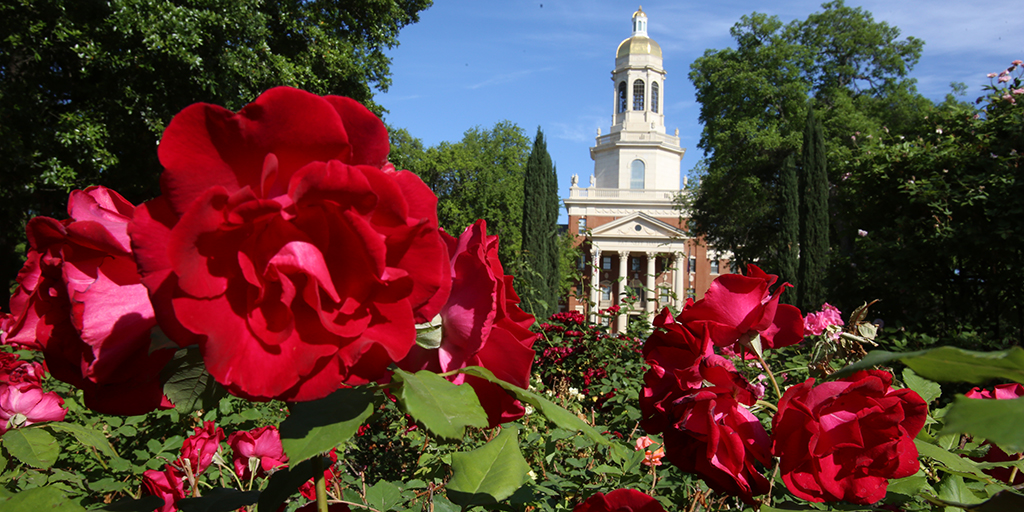
As Christians, we’re called to be stewards of God’s creation. We’re also proud of the beautiful campus we’ve been blessed with. With those things in mind, Baylor aims to take good care of all that we’ve been given — including our natural resources.
In 2009, Baylor became the first university in Texas to earn LEED certification for an existing building, an honor given to facilities that meet a strict standard of environmental friendliness. In recent years, Truett Seminary’s Baugh-Reynolds Campus, the Highers Athletics Complex/Simpson Center, and Allison Indoor Practice Facility have all been LEED certified, and the university is seeking LEED certification for the new Foster Campus for Business and Innovation.
The dining halls at Baylor have also made concerted efforts to “go green” through such means as trayless dining and reusable to-go boxes. They have also gone to increasingly great lengths to serve locally grown, organic, and vegan items; by 2016, 20% of the food served in Baylor dining halls will be locally sourced.
The most impactful effort has been Baylor’s recycling program, which includes the recycling cans you see scattered across campus, the Move In recycling and Move Out donation drive, and volunteers at tailgating events. On a campus with more than 16,000 students and 2,500 faculty and staff, the little things we do go a long way. In 2014, the university recycled 1 million pounds of material through these programs — up more than 300% in less than 10 years.
Yet even with all these programs’ successes, Baylor Sustainability isn’t satisfied. By 2020, their 5-year plan aims to have achieved:
- 20% locally sourced food in dining halls;
- 30% waste diversion rate;
- 17% reduction in water usage; and
- 15% reduction in greenhouse gas emissions.
Sic ’em, Baylor Sustainability!
You might also like:
* April and May busy months for green-minded efforts on campus (May 2012)
* State, national honors honor Baylor’s effort to ‘go green’ (July 2010)
* Students lead drive to make Move-In more green (Sept. 2009)